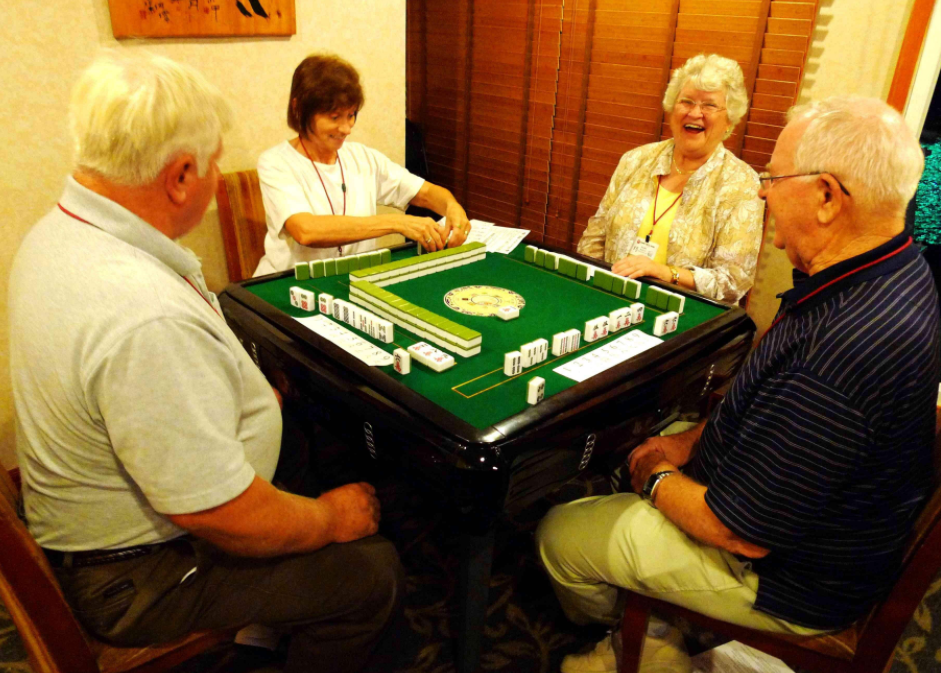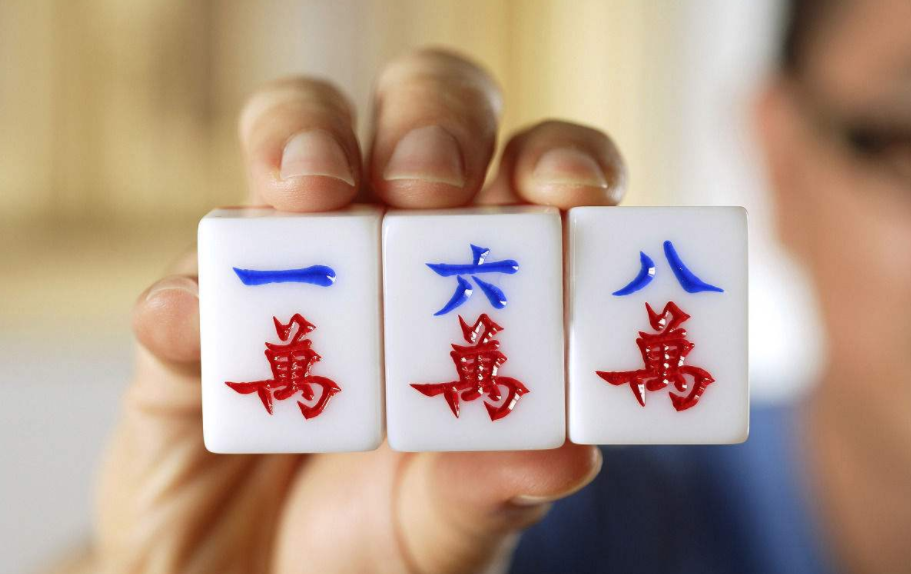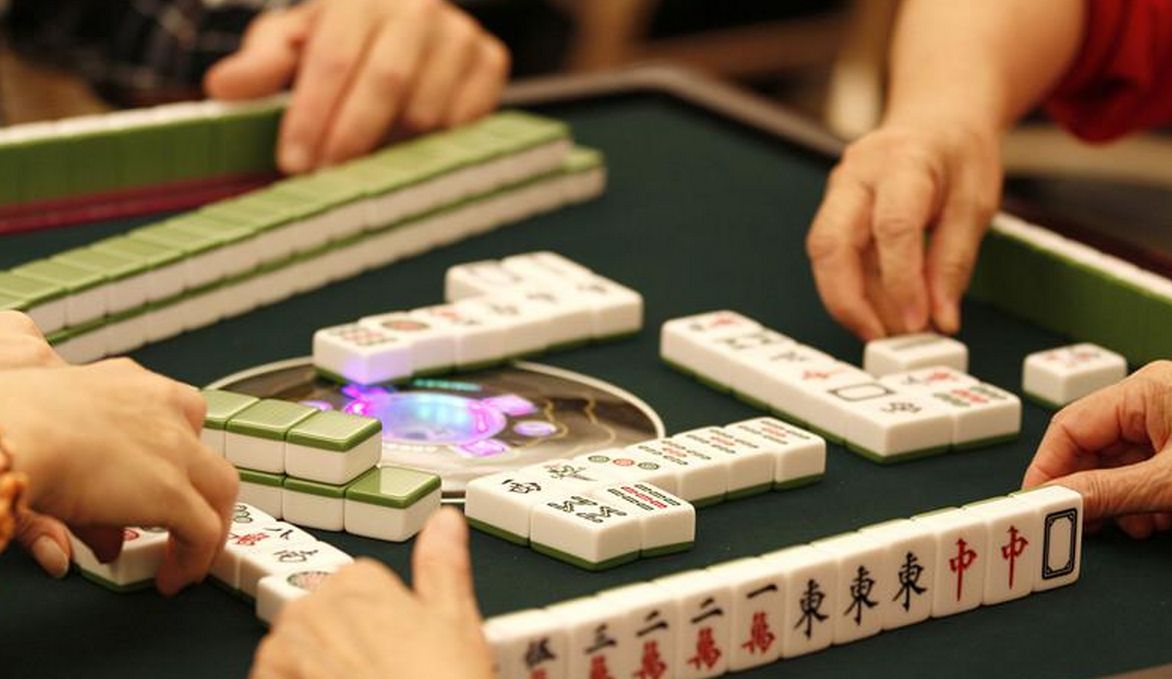24 Hours Hotline: +8613735411378
Email:[email protected]
24 Hours Hotline: +8613735411378
Email:[email protected]

Mahjong
Mahjong is a tile-based game that was developed in China during the Qing dynasty and has spread throughout the world since the early 20th century. It is commonly played by four players (with some three-player variations found in South Korea, Japan and Southeast Asia). The game and its regional variants are widely played throughout Eastern and South Eastern Asia and have become popular in Western countries too. The game has also been adapted into a widespread online entertainment. Similar to the Western card game rummy, Mahjong is a game of skill, strategy, and calculation and involves a degree of chance.
The game is played with a set of 144 tiles based on Chinese characters and symbols, although some regional variations may omit some tiles or add unique tiles. In most variations, each player begins by receiving 13 tiles. In turn players draw and discard tiles until they complete a legal hand using the 14th drawn tile to form 4 melds (or sets) and a pair (eye). A player can also win with a small class of special hands. There are fairly standard rules about how a piece is drawn, how a piece is robbed from another player, the use of simples (numbered tiles) and honors (winds and dragons), the kinds of melds allowed, how to deal the tiles and the order of play. Despite these similarities, there are many regional variations to the rules including rather different scoring systems, criteria for legal winning hands and even private table rules which distinguish some variations as notably different styles of mahjong.
Sichuan Mahjong
Chengdu is known as the leisurely city, and although Chengduites may seem to do everything lackadaisically there is one thing very serious going on in Chengdu: Sichuan majiang (mahjong).
On every block of Chengdu and around every corner you'll be able to find inexpensive tea houses to pass night and day playing majiang and sipping tea. In Chengdu, Sichuan majiang is played religiously.
The Object of the Game
The objective is simple: you're trying to collect three of a kind of the same suit and runs of three of the same suit. To win you'll need four groups of three (either three of a kind or a run of three) and one two of a kind. For example, a winning hand would be two "four cookies", three "five cookies", three "seven cookies", "one character, two characters, three characters", and three "five characters" (image above).

Shuffling and "Dealing"
At the beginning of the game the pieces are shuffled and stacked into lines; nowadays usually done with a machine. Everyone rolls the dice to decide who goes first or the winner of the last round goes first.
From whoever rolled the dice count counterclockwise to decide which stack to start pulling tiles from. Once you find which stack to start from the lower number of the two dice determines where in that stack you start pulling tiles from.
Each player pulls tiles four at a time until you have twelve tiles. Then whoever started takes two tiles (jumping over one tile) and everyone else takes one tile. Watching another table of players do this once will be enough to understand how it works.
Choosing a Suit and Discarding Tiles
Take a look at your hand, you must choose only two suits to go for and discard all of the tiles of the third suit. For example, maybe you have seven "characters", three "cookies", and three "sticks" (see image below). In this case you'll need to decide whether you like sticks or cookies, but once you choose to discard a certain suit there is no going back. If you choose to discard cookies then every time you get a cookie you'll just discard it even if that is the only suit you draw for the rest of the game.
For the first round everyone decides which tile to discard first and places it face down on the table (this levels the playing field a little because everyone needs to decide which two suits to go for before seeing which suit the other players are discarding). After everyone does this the person who started reveals the discarded tile and the next player takes a tile and reveals his or her discarded tile. In the next round it is simply take a tile, discard a tile.
"Peng" and "Gang"
If you have two tiles that are the same then you can "peng" when someone discards the third one, take the discarded tile and show everyone your three of a kind (if you have three of a kind and see the fourth one then it is the same rule, but say "gang"; it counts as a set of three). This gives you a set of three and then play continues from you (discard a tile and your turn is over).
As far as runs are concerned you'll need to hope that you are lucky enough to draw the tiles you need through the course of the game.
Ending a Game
Usually you'll have thirteen tiles in your hand, but to win you'll need fourteen. If you are one tile away from winning this is called "getting off of the rickshaw" (xia jiao). If you draw a tile that will give you a winning hand or someone discards it you just take it. Place that last tile face up and the rest of your tiles face down. The other three players continue till the end.
Gambling
Now here comes the exciting part! Usually majiang involves at least minor gambling. If when you won you took someone else's discarded tile then that person pays you one playing card (playing cards are like poker chips and you should agree on the value of each card, usually the value is from 0.5 RMB to 100 RMB).
If you drew your winning tile by yourself "zi mo" then everyone needs to give you one playing card. The same rules apply to the person who won second and third. There are also many special hands that give you multipliers, but you'll need to agree on those rules before you start playing because not everyone plays by the same rules when it comes to multipliers. Have fun and enjoy!

Duration:6-8 Hours
Attractions(Cities): Chengdu Panda Research Base, People's Park, Jinli Ancient Street, Kuanzhai Alley
Tour Style:Immerse yourself in the charm of Chengdu with our Chengdu City Tour. Start at the Chengdu Research Base of Giant Panda Breeding, where you'll get a close look at the adorable giant pandas in their natural habitat and learn about vital conservation efforts. Next, head to People's Park, where you can enjoy a traditional tea experience, soaking in the tranquil local atmosphere. Afterward, take a stroll through Jinli Ancient Street, renowned for its traditional architecture and vibrant market. Finish the tour at the unique blend of history and modernity in Kuanzhai Alley. With round-trip transportation from your Chengdu hotel, this tour offers a seamless and memorable experience, perfect for panda lovers and culture enthusiasts alike!
Duration:6-8 Hours
Attractions(Cities):Chengdu Giant Panda Research Base, Leshan Giant Buddha
Tour Style:This day tour takes you to two of Chengdu’s most iconic attractions: the Chengdu Giant Panda Research Base and the Leshan Giant Buddha. In the morning, you’ll visit the panda base, where you can see the adorable pandas up close in their natural environment. Your guide will provide fascinating details about their behavior, diet, and conservation efforts, helping you gain a deeper understanding of these beloved creatures. In the afternoon, you’ll head to Leshan to marvel at the Leshan Giant Buddha, the largest stone-carved Buddha in the world. Your guide will share the rich history and cultural significance behind this ancient monument, making your visit even more enriching. This tour combines Chengdu’s natural wonders with its deep cultural heritage, ensuring a memorable and insightful experience.
Duration:2 Days 1 Night
Attractions(Cities):Chengdu Panda Base, Renmin Park, Wuhou Temple, Jinli Street, Wenshu Monastery, Chengdu Museum, Tianfu Square
Tour Style:This 2 days Chengdu tour offers a perfect blend of the city’s ancient heritage and modern charm. On Day 1, you’ll visit the Chengdu Panda Base to meet the adorable pandas, followed by a stroll through Renmin Park to experience the local lifestyle. In the afternoon, you’ll explore Wuhou Temple, a historic site steeped in the Three Kingdoms era, and wander through Jinli Ancient Street, a lively area filled with traditional crafts and local snacks. On Day 2, you’ll visit Wenshu Monastery, where full of peaceful Buddhist culture, followed by the Chengdu Museum to discover the city’s rich history. The tour ends at Tianfu Square, where you can feel the vibrant pulse of modern Chengdu. This itinerary, guided by a knowledgeable local, seamlessly combines the city's ancient and contemporary attractions.
Duration:8-9 Hours
Attractions(Cities):Dujiangyan, Qingcheng Mountain
Tour Style:This day tour takes you to two of Sichuan's most fascinating sites: Dujiangyan and Qingcheng Mountain, where nature and culture come together seamlessly. First, you’ll explore the Dujiangyan Irrigation System, a UNESCO World Heritage site that showcases ancient Chinese engineering brilliance. Your guide will explain its history, importance, and how it has shaped water management in the region for over two thousand years. Next, you’ll visit Qingcheng Mountain, a peaceful and spiritual place known as the birthplace of Taoism. Here, you’ll wander through ancient temples and Taoist shrines, surrounded by lush greenery and serene landscapes. This tour offers a unique opportunity to immerse yourself in both natural beauty and rich cultural heritage.
Duration:3 Days 2 Nights
Attractions(Cities):Leshan Giant Buddha, Mount Emei, Chengdu Research Base of Giant Panda Breeding, Renmin Park, Jinli Ancient Street, Kuanzhai Alley
Tour Style:This 3-day Chengdu tour offers the perfect blend of cultural exploration and natural beauty. On Day 1, visit the Chengdu Research Base of Giant Panda Breeding to see China’s iconic pandas up close, then continue to Renmin Park, Jinli Ancient Street, and Kuanzhai Alley, where you’ll experience the city’s lively atmosphere and rich heritage. Day 2 takes you to Leshan, where you’ll marvel at the UNESCO-listed Leshan Giant Buddha, followed by a scenic drive to Mount Emei. On Day 3, explore the sacred beauty of Mount Emei, including the Golden Summit and the stunning Huazang Temple. Throughout the journey, your expert guide will offer fascinating insights, ensuring a smooth, engaging, and unforgettable experience every step of the way.
Wechat: Chinaprivatetour
24 Hours Hotline:
+8613735411378
(Your Privacy is Protected)
1 to 1 tailor-made service from our professional travel advisors for the most sophisticated
Constantly excellent reviews for attraction, hotel and service Competitive price
Local experts provide quality tours Best selected knowledgeable local guides Authentic local restaurants
7*24 hours available to create you a worry-free tour. No Hidden Fees and absolutely no pressure to buy. Secured







